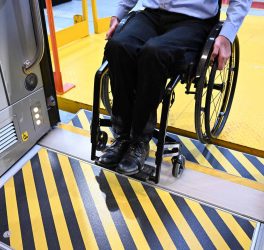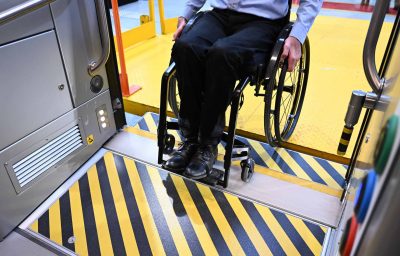
Employers reap $40 in savings for every dollar invested in workplace adjustments to support staff with disability, according to a research review launched by the Australian Government’s disability employment hub, JobAccess, today.
Disability-inclusive businesses grow profits more than four times faster than their peers. Employees with disability stay on the job longer on average than those without disability. And people with disability are safer in the workplace and have 34 per cent fewer accidents than other employees.
These statistics are part of a research review titled “The compelling case for disability employment in Australia – the unrivalled benefits of an underutilised labour market”, which was tabled by JobAccess General Manager Daniel Valiente-Riedl today.
“Despite a strong business case, there is an employment bias against people with disability. Managers and employers are often concerned that productivity benefits might not be enough to justify costs to the business.
“But Australian and global research tell a completely different story,” Mr Valiente-Riedl said.
“Discrimination remains very real. Some employers aren’t hiring people with disability because of attitudes and stereotypes that are simply incorrect.”
Australia’s disability employment gap of over 30% – largely unchanged since 2003 – puts it behind OECD economies, including Italy, Finland, France and Sweden2.
The estimated economic benefits of employing people with disability would add over $50 billion to the GDP by 2050 if Australia moved up into the top eight OECD countries for the employment of people with disability3.
Low unemployment rates and a fall in skilled migration have characterised the Australian labour market over the past 24 months. The most recent data says that one in three businesses face difficulty finding suitable staff, with large and medium-sized organisations more likely to be impacted4.
Employers are turning to untapped sections of the labour market, including people with disability, to bridge the skills gap. “This is not surprising given the positive impact disability engagement has on business growth and profitability,” adds Valiente-Riedl.
The research review released by JobAccess looks at myths and misconceptions about disability employment and examines the benefits of businesses that embrace disability inclusion.
Common misconceptions include that co-workers are not comfortable working with people with disability and that people with disability have trouble getting along with others on the job.
“This is simply not borne out by the research, and the evidence of improved loyalty and lower staff turnover shatters this myth.
“In today’s tight labour market, there is a competitive advantage in hiring people with disability. It also positively impacts workplace culture with diversity and inclusivity and builds a workforce that represents the diversity of communities in which businesses operate.”
JobAccess is the Australian Government’s disability employment hub. One of its many services is to provide advice and support to employers who want to tap into the wide talent pool of people with disability.
As part of this, expert allied health professionals advise on workplace adjustmentswhich can increase productivity, accessibility and inclusion in a workplace.
Awareness of workplace adjustments is low both among employers and people with disability, according to the findings. There is also a myth that workplace adjustments are difficult to organise and often expensive.
“Our internal research shows that half of the modifications cost less than $1,000 and that many adjustments can be made at no cost at all, like providing flexible work hours or locations,” Valiente-Riedl says.
“They are a powerful tool to build inclusive and accessible workplaces. Not all people with disability require adjustments to do their jobs, and in most cases, implementing such adjustments are often low-cost or incur no cost.”
Employers can access financial assistance to implement workplace adjustments to support employees with disability through JobAccess and the Australian Government’s Employment Assistance Fund (EAF).
Adopting long-term, sustainable measures to attract, employ and retain people with disability is vital to mitigate adverse talent risks. JobAccess’ employer engagement program – National Disability Recruitment Coordinator (NDRC) – partners with larger employers across Australia to improve their disability confidence through free, tailored 12-month partnerships.
Since 2010, the NDRC has worked with over 380 organisations, including public, private and not-for-profit entities, across a prolific breadth of industries.
“Instead of being guided by negative attitudes and perceptions, employers need to start seeing the opportunities that can come by employing people with disability. Increasing disability confidence and embedding inclusive employment practices is the starting point to build strong teams,” concludes Mr Valiente-Riedl.








